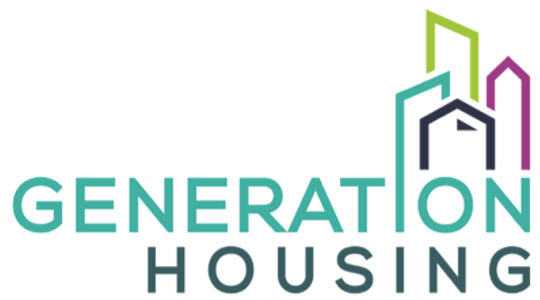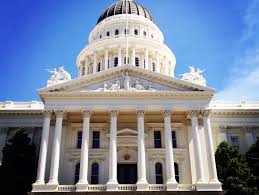December 16, 2020
Last week, the California State Legislature welcomed a new slate of members and introduced the first bills of the new year’s legislative session. In this week’s policy digest, we look at the new (and returning) housing bills that have been introduced in the State’s latest effort to improve housing affordability in California.
Some proposals look familiar as State Senate President Pro Tem Toni Atkins has reintroduced several bills as part of a Senate Housing Production Package that failed to garner approval last year, but which promises to be the centerpiece of the Senate’s push to address the housing shortage in this year’s legislative session.
We dive into the bills by dividing them into several categories: COVID-19, energy, production, short-term rental, subsidized housing, and wildfires. Because we’re still early in the legislative process, it’s important to note in this update that some bills are at the moment considered “spot bills” – meaning that they act as placeholders describing intent with more details yet to come.
We also have a new tool to track state housing bills, which can be found here
COVID-19
AB 15 (Chiu) extends the protections for renters first approved earlier this fall in the COVID-19 Tenant Relief Act of 2020 that were set to expire this coming February and extends them through the end of 2021, which included a moratorium on evictions for nonpayment among other items. AB 16, also introduced by Asm. Chiu outlines the State’s intent to “address the long-term financial impacts of the COVID-19 pandemic on renters, small landlords, and affordable housing providers.”
SB 3 (Caballero) and SB 64 (Leyva) would extend current protections for tenants against evictions and the application of the Homeowner Bill of Rights to small landlords through March 31, 2021, along with protections for mobile homeowners.
ENERGY
Newly elected Senator Dave Cortese (San José) has introduced two bills focused on building and decarbonization. SB 31 would developer new building decarbonization programs through the CPUC with an emphasis on low-income customers. SB 32 would require all cities and counties in California to update their General Plan with objectives, targets, and policies to fully decarbonize their building stock.
SB 68 (Becker) is a spot bill describing the legislature’s intent to “achieve its climate and air pollution reduction goals in the building sector through actions such as reducing barriers to upgrading electrical service panels or accommodating additional electrical appliances within existing service panels.”
PRODUCTION
The major piece of legislation within the Senate Housing Production Package is SB 9, introduced by Sen. Scott Wiener. Also known as the HOME Act, the bill promotes small-scale neighborhood residential development by streamlining the process for a homeowner to create a duplex or subdivide an existing lot in residential areas. This bill builds on the state’s approach to Accessory Dwelling Units (ADUs).
SB 10 (Wiener) would make it easier for cities to willingly upzone lots for up to 10 homes near job centers and transit within existing urbanized areas. SB 15 (Portantino) would create funding incentives for cities to rezone idle retail sites for housing. SB 6 (Caballero) authorizes residential development on existing lots currently zoned for commercial office and retail space such as strip malls or large “big box” retail spaces.
SB 7 (Atkins) would streamline the California Environmental Quality Act (CEQA) process by extending and expanding streamlined paperwork and expedited legal challenges to large, multi-benefit housing, energy, and manufacturing projects. SB 8 (Skinner), a fairly minor bill, would clarify language related to the Density Bonus Law.
SHORT-TERM RENTALS
SB 60, introduced by Senator Glazer, increases the fines on illegal short-term rentals that violate a local ordinance.
SUBSIDIZED HOUSING & AFFORDABLE HOUSING FINANCING
A few weeks ago, the State Auditor released a blistering report criticizing the State’s management and lack of response to the housing shortage. AB 68 (Salas) is a spot bill that intends to implement recommendations in the Auditor’s report on funding, permitting and building.
AB 71, introduced by Asm. Rivas and Chiu would provide $2.4B to fund homelessness programs and solutions through a series of taxing mechanisms, including the closure of certain tax loopholes.
ACA 1, introduced by Asm. Cecilia Aguiar-Curry, along with several other coauthors, including Asm. Levine would lower the voter approval requirement for local special taxes and general obligation bonds for affordable housing and public infrastructure from two-thirds to 55%. In 2018, 62% of Santa Rosa voters approved of Measure N, a local housing bond measure, but failed because it did not clear the two-thirds threshold.
SB 5 (McGuire) establishes the initial framework for a statewide housing bond that would fund the creation of new, affordable housing for homeless and low-income families.
SCA-2, introduced by Senator Wiener and Senator Allen, would repeal the de facto ban on new publicly financed affordable housing developments by repealing the constitutional amendment requiring that a majority of voters approve a low-income housing project that is publicly financed.
WILDFIRES
SB 11 (Rubio) would require the Insurance Commissioner to convene a stakeholder group of expert parties to identify ways to measure and incorporate various fire damage mitigation strategies into the homeowners’ insurance rate-making process and to report the group’s findings to the Legislature no later than December 31, 2023.
SB 12, introduced by Senator McGuire and coauthored by Senator Dodd, would require local governments to identify very high fire risk areas in their land use elements as part of their general plan. It would also prohibit jurisdictions from entering into development agreements in high fire risk areas. SB 55 (Stern) also included language about banning new development in high fire risk areas.

